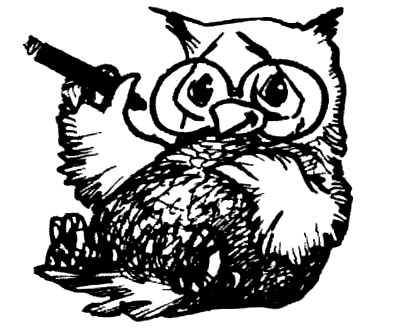Alonzo “the Arrow” McKee and Sergio “Ace” Boone were two of the most vicious bandits ever to traverse the deserts of Nevada. For decades, the two rivals never met face-to-face, locked in a cold war as they tried to expand their spheres of influence. The Arrow built a reputation for his poker abilities, while the Ace was known for his archery prowess. Both were fearsome opponents to any poor traveler who had the misfortune of crossing their paths.
Their meeting is one of the most poorly-documented yet historically significant events to take place in the Wild West.
It was a Friday night in the summer of 1884. Word had spread that the Arrow was lodging in Elko, Nevada for the weekend to drink some beer, play some cards, and be merry.
But Elko fell within Ace’s territory and everyone—including the Arrow—knew it. This was no peaceful weekend getaway; it was an act of aggression.
Ace rode into town on his horse, White Thunder. A tumbleweed rolled past and the wind whistled as he kicked open the door of the Last Dollar Saloon, where the Arrow was playing mancala (he was banned from the poker tables there, but we all know that story already).
Without looking up from the board, the Arrow boomed in his gravelly baritone voice, “Well, well, well, I was wondering when you might show up, Sergio. I think it’s high time we meet.” He kicked his chair back and slowly rose to his feet. Then, with a pirouette that would put Waltzin’ Winnie to shame, he turned to face his archnemesis.
“Alonzo,” the Ace responded softly, “don’t go diggin’ for water under an outhouse. Why don’t you leave while you still can?” The two men stared across the saloon, as if waiting for a camera to pan from one to the other with tight zooms on their eyes. Onlookers went silent, and that sound from generic movies about Wild West standoffs rang in the background.
The Arrow finally broke the silence: “I ain’t scared of you,” he said.
“Nor I of you,” replied the Arrow, with a stunning appreciation of the nuances of grammar, sentence construction, and how to imply nouns rather than restating them, considering his lack of an education.
“Why not? Don’t let your yearnings get ahead of your earnings. Haven’t ya heard the stories?” the Arrow challenged.
“I have. But you have such warm eyes, I struggle to take those actions too seriously.” The crowd began to snicker.
But then came the reply: “Thanks. You look very dapper tonight, yourself.” The crowd’s snickers grew to murmurs of confusion.
“But with that said,” the Arrow continued, “I must tell you something. I’m afraid this town isn’t big enough for the two of us—”
Ace cut him off: “Ah, but that’s where you’re wrong. This town is only big enough for the two of us.”
“I’m afraid I don’t understand,” said the Arrow.
“We have so much in common, Sergio. What do you say we put aside a few past grievances, and run this town together?”
“As allies, you mean?” the Arrow asked.
“As lovers,” Ace replied with enough swagger to back up his words.
The fourteen beats of silence spoke louder than the loudest rooster’s crow upon seeing the morning sun. Homosexuality was illegal in those days, but what are laws to a coupla cowboys? The crowd waited with bated breath for the response.
Finally, the Arrow replied, “I was beginning to think you might never ask.”
The barkeep started to speak in objection, but the duo simultaneously reached for their weapons, and the Arrow’s bullet and Ace’s arrow pierced the man’s throat at the same time.
Their union was the dawn of a new reign of terror across the Nevada sands, but it was also the Wild West’s first public flirtation with the homoerotic.
The two men were inseparable for the rest of their days. They went for long walks at sunset. They robbed banks together. They spent late nights in bed talking about everything and nothing at the same time. One time, when the Arrow got shot in the foot, Ace shot himself in solidarity. Finally, when Ace met his untimely end in the infamous horse tramplings of 1889, the Arrow pitched himself off a cliff.
The two bodies still lie next to each other in their graves. And those famous words of acceptance are forever emblazoned in the Last Dollar Saloon: “This town’s only big enough for the two of us.” Sergio Boone and Alonzo McKee may be no-good scoundrels for their crimes, but they are heroes for their love.
—A. Cramer

